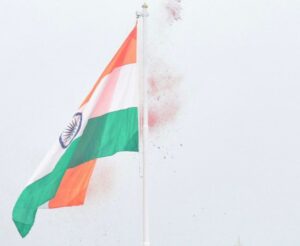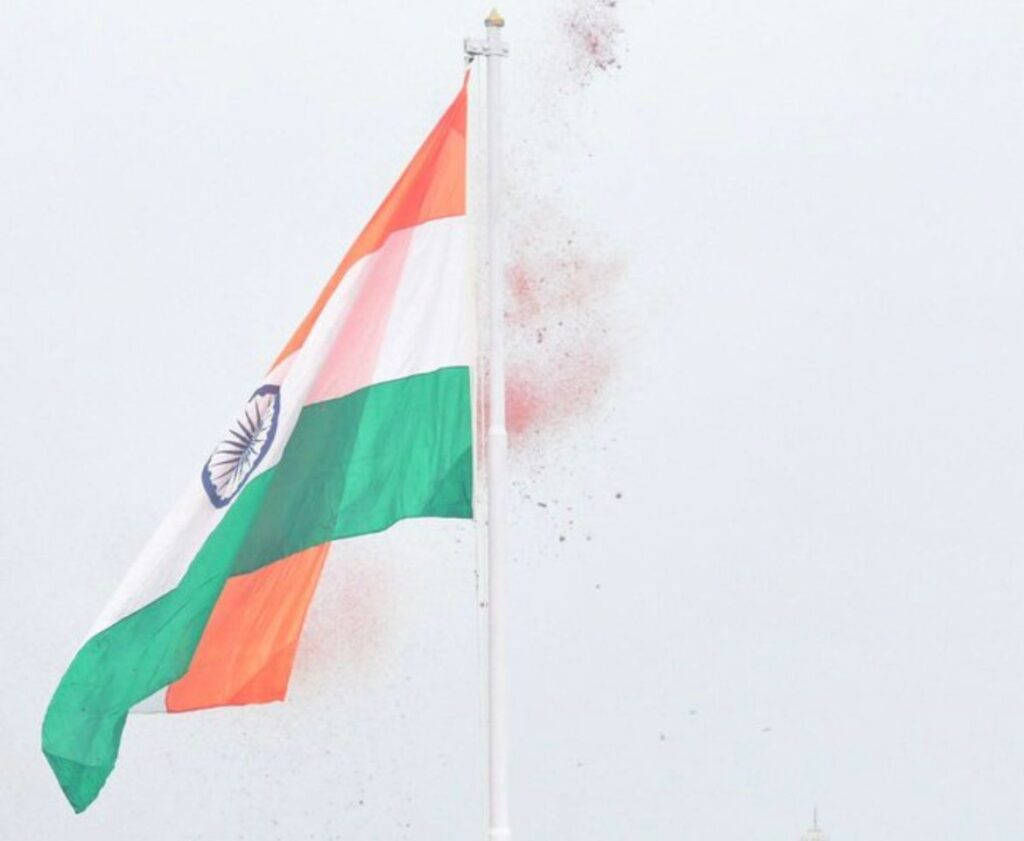
Trisha Ghoshal
As we celebrate 77 years of India’s independence, we are reminded of the sacrifices made by countless individuals who fought for the freedom we now enjoy. But as the Tricolour flies high and we sing the national anthem with pride, a deeper question emerges: Are we truly independent?
Do we, as a society, embrace the essence of freedom in all its forms, or are there still chains that bind us — chains of prejudice, judgment, and unrealistic expectations, especially in the world of sports?
Sports have always been more than just games. They are a reflection of our collective hopes, our ambitions, and our national pride. We rally behind our athletes, placing them on pedestals, celebrating them as symbols of what it means to be Indian.
Yet, this adulation is fickle, conditional upon victory. When our athletes succeed, we shower them with praise, turning them into gods. But when they fall short, the very hands that once applauded them are quick to hurl insults, drown them in vitriol, and tear them down. This paradox reveals a troubling reality: our love for our sportspeople is not unconditional; it is contingent upon their ability to satisfy our thirst for glory.
Consider the plight of an athlete who doesn’t make the podium. Overnight, they go from being a national hero to a target of abuse. Their social media feeds, once filled with adoration, become battlegrounds of hostility. Every aspect of their life is scrutinised, their every word dissected, their very existence questioned. The pressure to conform to an ideal image — one that is flawless, infallible, and constantly victorious — is overwhelming. But this is not freedom. It is a cage, gilded with our expectations, that traps our athletes in a cycle of fear and performance anxiety.
This culture of conditional support is not just damaging — it is deeply unjust. It disregards the human behind the athlete, reducing them to mere instruments of national pride. It robs them of their right to failure, their right to be vulnerable, and their right to live their lives outside the shadow of public expectation. How can we claim to be a free nation when those who represent us on the global stage are denied the basic freedom to be themselves?
Consider the case of Virat Kohli, one of India’s most iconic cricketers. Despite his numerous achievements and his status as one of the greatest cricketers of his generation, Kohli faced an unprecedented wave of backlash after India’s early exit from the 2021 T20 World Cup. Trolls didn’t just stop at criticising his performance; they viciously attacked his wife, Anushka Sharma, and even his newborn child. The very fans who had celebrated his every run suddenly turned on him, as if his worth was solely tied to his ability to win. This was more than just criticism — it was an assault on his personal life, a stark reminder that for many, an athlete’s value is measured only by their latest performance.
Sania Mirza, India’s tennis trailblazer, faced similar hostility throughout her career. Despite being one of the most successful athletes in Indian history, with multiple Grand Slam titles and an illustrious career that put Indian tennis on the global map, Sania has often been subjected to brutal trolling.
She faced criticism not only for her on-court performances, but also for her personal choices — like her decision to continue playing after becoming a mother. The scrutiny she faces is a constant reminder that, for many, a woman’s place in sports is still up for debate, and her worth is too often measured by factors that have nothing to do with her abilities or achievements.
The situation is even more troubling when we consider the experiences of women in sports. Despite the incredible achievements of female athletes like P.V. Sindhu, Mary Kom, and Mithali Raj, sports in India remain largely a man’s world. When these women falter, they face not only the usual criticism but also gendered abuse that questions their place in the sport itself. After the Tokyo Olympics, where Sindhu brought home a bronze medal, trolls still found reasons to criticise her — her appearance, her personal life, her choices — ignoring the monumental achievement she had just accomplished.
In other sports news:
Ranjit Bajaj Live : All Questions on the Anwar Ali Saga https://t.co/I2cRebUasn
— RevSportz Global (@RevSportzGlobal) August 15, 2024
The toxic culture of trolling and moral policing which athletes — male and female — face is a symptom of a larger problem. It reflects our inability to accept the diverse, complex, and often flawed nature of human beings. It shows that we, as a society, are still shackled by narrow-mindedness, intolerance, and a lack of empathy. True independence is not just about being free from external oppression; it is about liberating ourselves from these internal chains.
Freedom is not just about the right to succeed — it is also about the right to fail, to speak out, to live without fear of judgment. As we mark another year of independence, let us ask ourselves: Are we truly free if our athletes are not? Are we truly independent if we cannot accept our sportspeople for who they are, with all their triumphs and failures, their strengths and vulnerabilities?
For more sports content: https://revsportz.in/




